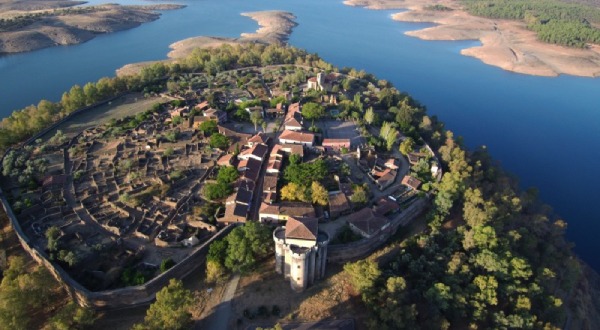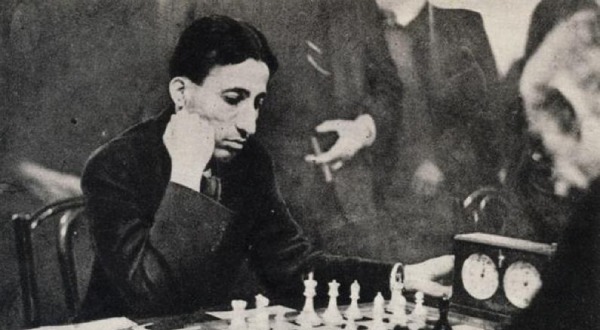The interview took place on 26.05.2022 at the open-air press-terrace in Palais des Festival, Cannes. Butterfly Vision narrates an Ukrainian amazon’s post detention life, the memories of physical, sexual and mental torture in the hand of her adversaries, and her struggle to fit in amongst prevalent post-traumatic stress. In the premiere of ‘Butterfly Vision’ Maksym said, “We did not have the choice of being political or apolitical…”
Rupak: Before we talk about Butterfly Vision, let me start by asking, are you based in Ukraine right now? How is your family doing? I hope everyone is safe.
Maksym: Yes, my mother is in Odessa. We are thinking and considering her to move. But it is not very easy for her. Firstly, health wise she is not doing very well, and it will be stressful for her to be in exile too. Generally, we are trying our best to adjust to regular shelling, is all I can say.
Rupak: Thank you. Coming to the film, I was a bit confused about the timeline of the movie. In the first shot we see the protagonist gazing at the bombed and destroyed horizon (section) of the city, and later towards the end we see the same section of the city been rebuilt. What time, or to be precise, which years are we talking about here?
আরও পড়ুন
Cannes-এর দরজা ঠেলে: ‘বয় ফ্রম হেভেন’ এবং এক ন্যারেটিভের কিংবদন্তি হয়ে ওঠার গল্প
Maksym: This is, let’s say, somewhere in between the first and second Russian invasion. The production took place in 2017. The film is based on a period when the global community was starting to feel a bit detached from the topic. The timeline was chosen to be vague in order to show the global community that we are in a state of war irrespective of time, city or situation. That world must accept this!
আরও পড়ুন
Cannes-এর দরজা ঠেলে: মুখোমুখি লাল গালিচার চিত্রকর
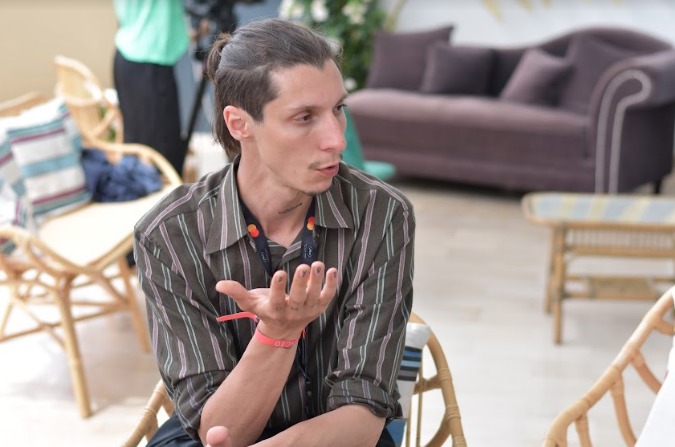
আরও পড়ুন
Cannes-এর দরজা ঠেলে: ইউক্রেনের পরিচালক মাক্সিম নাকোনেশনি-র সাক্ষাৎকার
Rupak: Are you trying to say that it’s not about 2014 or 2022, the problem was always there?
Maksym: Yes, off course it was always there! Being an ex-colony of Russia is a general struggle for us. There has been years and years of oppression on our identity, our language, our culture and most of all our people.
We can see the western powers imposing principles of decolonization into the general cultural discourse. But when it comes to this artificial post-Soviet construct why is there such silence and ignorance? They are not ready to acknowledge the presence of Russian imperial approach in the region.
There is nothing called post-Soviet cultural identity, it is ‘Russkiy Mir’ or the idea of Russian World that our enemy been trying to construct. They use it as a justification by saying that they are protecting us to invade our countries. We have seen this before for countries like Hungary, Czech, Poland etc.
Ukrainian, Belarusian, Georgian, Armenian, or other middle Asian cultures; all form separate sovereign identities. They are individual participants of the general cultural discourse and process. Not taking this into account is an unfortunate ignorance.
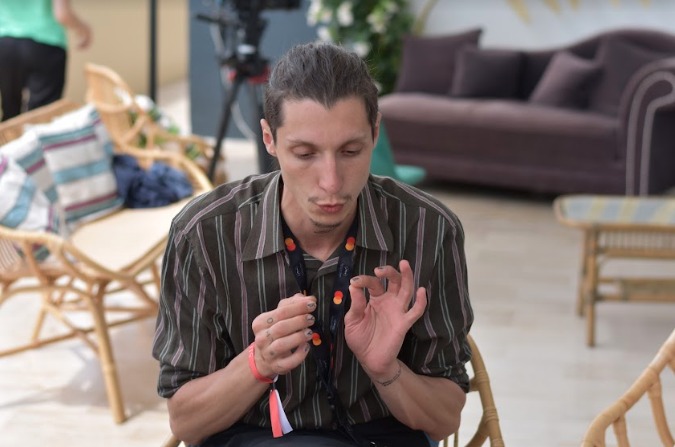
Rupak: My next question is about the narrative form of the film. Why did you choose fiction for such a story? I mean for the kind of narrative that we see in Butterfly Vision; don’t you think that the documentary-form could have given more power to the story and the director?
Maksym: Well, first-of-all let me tell you that when the story came to my mind it wouldn’t let me go. That’s probably the principle why you make films in the first place, at all.
Coming to documentaries, before the full-scale invasion I was mostly producing documentaries. Making documentaries about real stories is quite a big responsibility. I don’t think I have met a story yet for which I would take that amount of responsibility as a person who would create the sense around it based on real life and real phenomena. But off-course I also consider documentaries to be much more relevant and capable; but fictions are also able to have similar impact if the authors are aware of that connection. The story must be rooted in reality, and a final contribution to it has to be present as well. This is also how we came to this structure of our film. Our main principle was to show that life always is bigger than whatever one can ever imagine it to be. You can see the twists and turns in Lilia’s life, and these dramatic things happen while life keeps flowing, nothing can stop it.
Our story, not the characters, is also related to some contemporary real events. One of our female warriors (on whom a previous documentary was made), alike my protagonist Lilia, in locked in a Russian detention centre for more than two months now. We are fighting and calling for her release. But that does not mean that Lilia is her prototype.
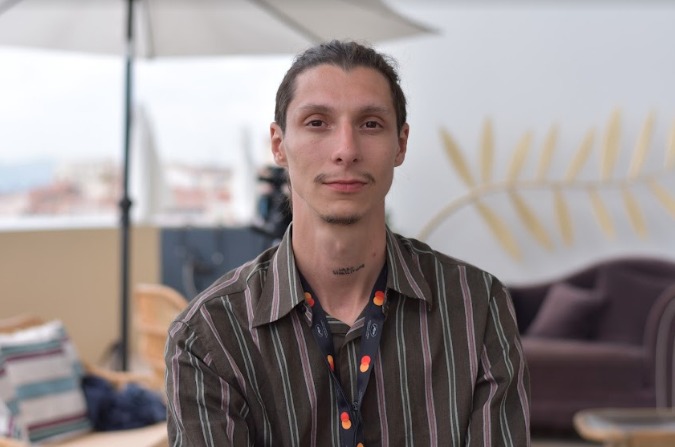
Rupak: Can you share her name please?
Maksym: Her name is Yuliepa Yevskaya. She was captured in Mariupol.
Rupak: Thanks. I had the chance of interviewing one of your colleagues from the Ukrainian pavilion, her name is Larysa Gutarevich. I understood from her statements that the Ukrainian film industry has gone through a lot. I heard one of the directors have passed away and his film is here in the festival…
Maksym: Yes, but he is a Lithuanian director. An American film maker who was making a documentary about global refugee crisis has also lost his life. And not only film makers, actors like ‘Pavlo Lee (Pavlo 'Pasha' Romanovych Lee)’ have lost their lives in the defence line. Pavlo was a part of the Territorial Defence Forces of our country. He was helping to evacuate civilians from a bombing site. He was trying to help a family and their child with his body armour and lost his life to Russian shelling. The son of our drama teacher has also lost his life quite recently. He was into dubbing and translation; he was also a very well-known poet. Our drama teacher is a nationally known poet, his poetry is taught in schools.
So yes, we have suffered huge losses. On top of that many film makers who are unable to continue their work, often consciously because they decided to take up arms or sometimes because finances are cut and their access to infrastructure and needed facilities are prohibited. You know, we are unable to focus on any other topics, our perception is very narrow, we cannot think globally, our focus is on here and now, it is very difficult to be creative under such circumstances.
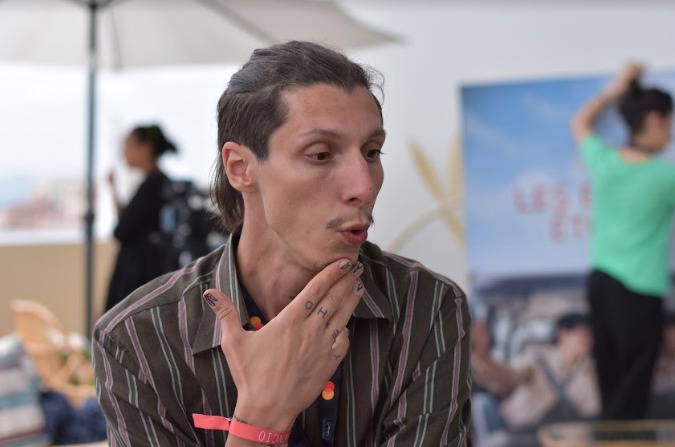
Rupak: You film talks about the advent or rise of right-wing fundamentalist forces within Ukraine and about the presence of socially segregating patriarchal issues. For instance, in the scene when Lilia discloses her unwanted pregnancy related to a rape incidence in the detention centre; her husband’s immediate question was about the date of upcoming abortion! He did not even think of asking whether she wanted the abortion or not. There are other similar scenes in the movie.
In the current political situation do you see the social stigma of patriarchy as a constraint in the path of forming a unanimous national identity?
Maksym: Yes (gets excited)! This is an excellent question!
I mean when you are making a film about a woman soldier you cannot avoid touching the issues of patriarchy or the feminist perspective.
Rupak: Especially in such a reactionary setup like the army? The ‘butterfly’ name also suggests it, I guess?
Maksym: Yes (smiles); in such strongly hierarchical system as the military! But at the same time, I would like to say that present day Ukraine is a very good showcase of demonstrating that the old lines of segregation are starting to be irrelevant. Especially at war, such principles start to merge. For instance, right now the right and the left wing are fighting a common enemy together. On the other hand, the presence of fundamentally feminist women along with moderates in such a patriarchal system as the military is giving rise to some sort of third social construct and paradigm.
We might talk about this more someday, but for now all I can say is that in the current political scenario we are the showcase of a global post-truth discourse of death or deconstruction or transformation of all prevalent ideologies…
Powered by Froala Editor


